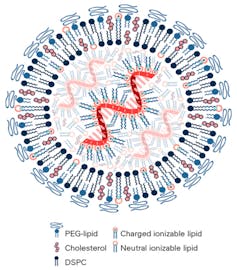Optimising AI in psychology, while minimising the risks is a key aspect of APS’s pre-budget submission and it requires urgent attention.
Whatever your position on AI, there is no doubt it is revolutionising almost every industry, including psychology.
On one hand, there’s the potential to improve equity, access and client experience. On the other hand, there’s a significant risk that, without caution, AI could give rise to inappropriate, ineffective and unethical approaches to treatment.
That’s why the Australian Psychological Society (APS), in its 2024-25 pre-budget submission, is calling on the Federal Government to invest in supporting, innovating and examining the use of AI in psychology.
Our proposal comprises three initiatives. The first is designing innovative digital-human models for mental health services. The second is equipping the mental health workforce for AI. The third is a longitudinal project, exploring the impact of AI on young people.
Below, we unpack these initiatives in more detail.
Why does the use of AI in psychology require urgent attention?
The rapid evolution of AI is both exciting and formidably challenging for psychologists.
“It is exciting because it could enable the delivery of better and better services – to more people than ever before,” says Dr Zena Burgess, CEO, APS.
“Psychologists can work hand-in-hand with this technology to deliver their important work to the community more efficiently and effectively.”
From 2021-22, psychologists provided more than 6.5 million services in Australia, engaging with 1.3 million people and comprising 49% of all Medicare mental health services. AI integrations could enable even greater access to fast and efficient mental health care.
“At the same time, AI is challenging because it presents unprecedented, and possibly unforeseeable, risks – from unethical application in practice to the deepening of inequities,” says Dr Burgess.
“Careful, research-informed integration of AI with human-based models of care is vital.”
In addition, psychologists have an ethical duty to strive to understand how AI is impacting youth mental health. Young people are likely to interact with AI in some shape or form every day of their lives – yet little is known about its impact on their mental health.
For example, AI can affect decision-making, communication, trust and engagement, according to several recent studies.
Initiative one: designing innovative, digital-human models
The APS supports the Government’s pledge to create a sector-led consortium, which will develop a national approach that enables clients to access the right support.
“However, more funding is desperately needed to ensure clients can move seamlessly between digital mental health services (DMHSs) and psychologists,” says Dr Burgess.
To that end, the APS proposes an initiative that would:
Refine the research about the intersection of DMHSs and clinical services
Review the evidence about psychologists’ experiences of DMHSs
Identify reforms to minimise barriers between DMHSs and psychologists
Develop guidelines for DMHSs to facilitate transitions to psychologists
Develop resources for psychologists working with clients from DMHSs, and
Advocate for effective regulation that supports psychologists and their clients in the effective use of both DMHSs and psychologist-led services.
“Without this important work, the transition between DMHSs and clinical practice is likely to cause serious issues,” says Dr Burgess.
These may include inefficiencies, administrative problems, stress for practitioners and poor outcomes for clients.
“We’ve been working hard over many years to prepare psychologists for the rise of AI and the rise of digital mental health services,” says Dr Burgess.
Initiative two: equipping the psychology and mental health workforce for AI
“AI, if used correctly, could innovate clinical practice,” says Dr Burgess.
“We could expect shorter wait times, better experiences and improved outcomes.”
It’s imperative that the government invests in training the mental health workforce to use AI effectively.
The APS seeks funding to:
Develop and deliver targeted training to psychologists;
Design and disseminate resources about technological, ethical, professional and psychological considerations;
Manage and deliver a small grant scheme, to enable professionals to develop, reflect on and showcase the use of AI; and
Create evidence-based guidelines for the safe and responsible use of AI.
“While we know many APS members are already doing innovative things with AI in their practices, These initiatives would ensure that more psychologists and mental health professionals make the most of AI, while avoiding potential pitfalls,” says Dr Burgess.
Initiative three: a longitudinal project exploring AI and youth mental health
“Young people in Australia are already experiencing a mental health crisis,” says Dr Burgess.
“We cannot afford to allow AI to impact it further, without thorough investigation of the possible consequences.”
For this reason, the APS proposes an ambitious project, which would provide data, insights and guidance about the impact of AI on our youth.
The project would provide the government, health professionals and other key stakeholders with a wealth of data to help inform social and health policy.
It would :
Establish a representative, longitudinal panel of young people in the care of psychologists
Enable psychologists to collect data about clients’ AI experiences and needs
Reimburse psychologists for their clinical and non-clinical time involved in the project;
Provide subsidised supervision to psychologists, to allow them to reflect on their experiences about the impact of AI and tech more broadly on young people, and
Connect researchers with the panel to encourage further research opportunities.
Psychologists are the right people to take the lead on this, says Dr Burgess, given they are trusted by young people – and uniquely positioned to explore their experiences.
“The resulting insights would help us understand how young people interact with AI over time – rather than on a particular date,” says Dr Burgess.
These insights could inform clinical interventions, regulatory reform and policy, including the Australian Framework for Generative AI in Schools and the forthcoming AI Safety Standard.
The foundations are ready
“We’ve been working hard over many years to prepare psychologists for the rise of AI and the rise of digital mental health services,” says Dr Burgess.
Recent APS initiatives have included:
The 2023 AI & Psychology Members’ Symposium, where international speakers explored the intersection between AI and psychology (APS members can watch the webinar on demand)
A submission to the 2023 Department of Industry, Science and Resources consultation on safe and responsible AI in Australia
Dissemination of Australian research about AI
A deep-dive article into digital mental health services, and
The establishment of ‘Find a Psychologist’, which enables members to create detailed profiles online.
“We’re pleased with the work we’ve done so far,” says Dr Burgess.
“However, we cannot stop here. There’s so much more to do – and we urgently need government funding for the profession and the community to decide the future case use of AI “
Advice for psychologists
For psychologists who’ve never worked with AI before, Dr Jenny Davis, Associate Professor, Australian National University, recommends “playing”, to explore AI’s capacities and limitations.
“A long, substantial, and mindful period of investigation should precede any professional implementation,” she says.
The next step is to establish AI literacy – without worrying about technical skills.
“AI systems are increasingly user-friendly, with interfaces legible to the relative novice,” she says.
“Gaining technical skills is an increasingly modest hurdle.”
Given this technical ease, the practitioner should be cautious.
“AI can lull us into a false sense of trust and over-reliance, whereby outputs are treated as true and objective,” says Dr Davis. “Understanding where data come from, how the tools work in a substantive way, and what the implications are for knowledge and practice is a far steeper learning curve.
“It must be continuously managed, often through collaboration with an interdisciplinary mix of other professionals, such as data scientists and sociologists, as well as consultation with members of the public who are represented in, and affected by, AI outputs.”
No time like the present
Whichever way we respond to the use of AI in psychology, it’s here to stay – and it’s evolving at lightning speed.
“We can’t afford to bury our heads in the sand,” says Dr Burgess.
“If we don’t equip our psychologists with the right training, then we’re putting them and their clients at risk. We’ll also be missing out on an exciting opportunity.
“AI gives us the potential to develop cutting-edge mental








